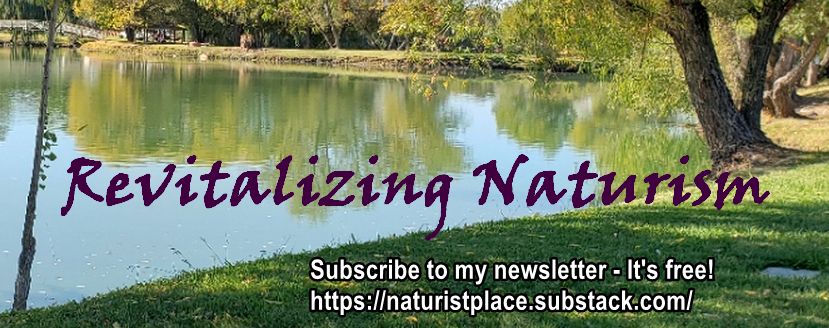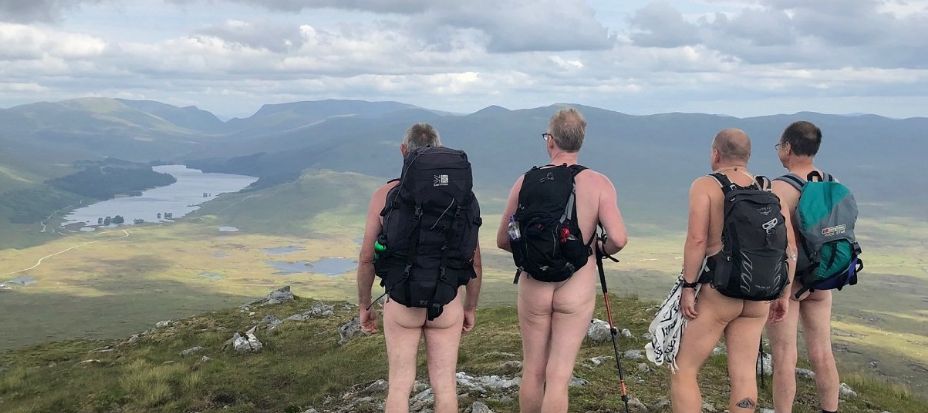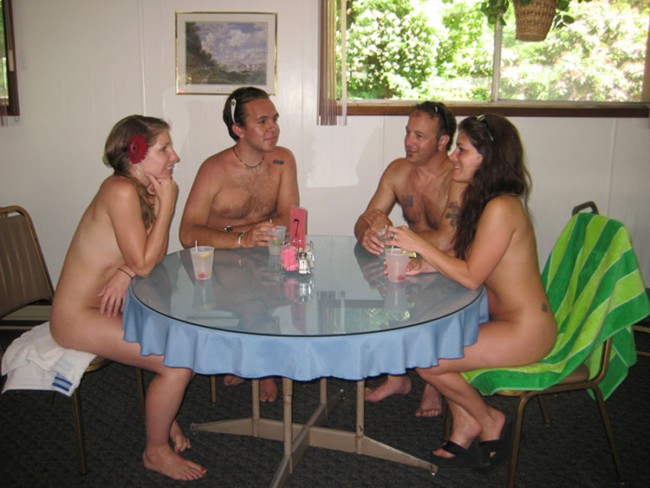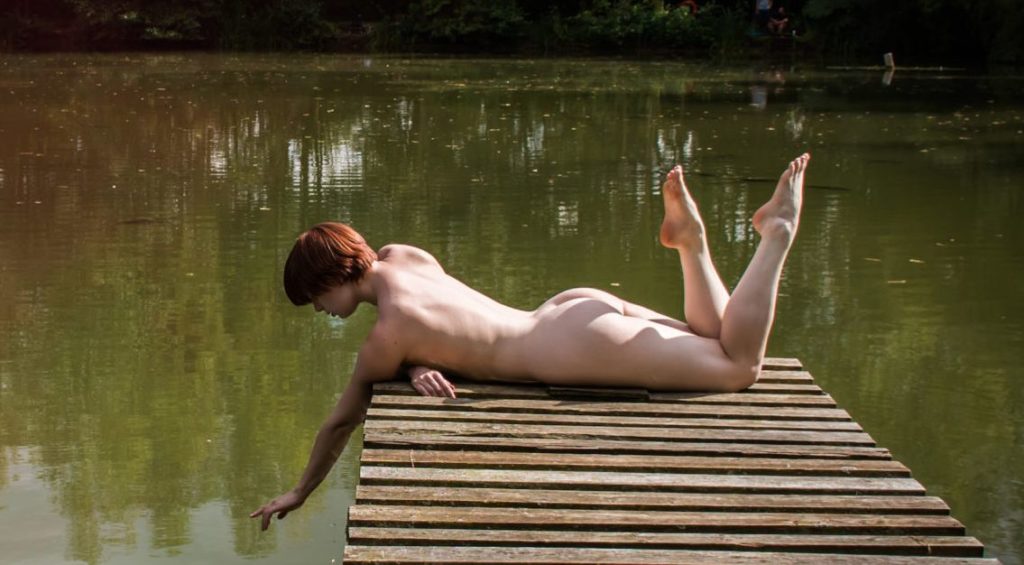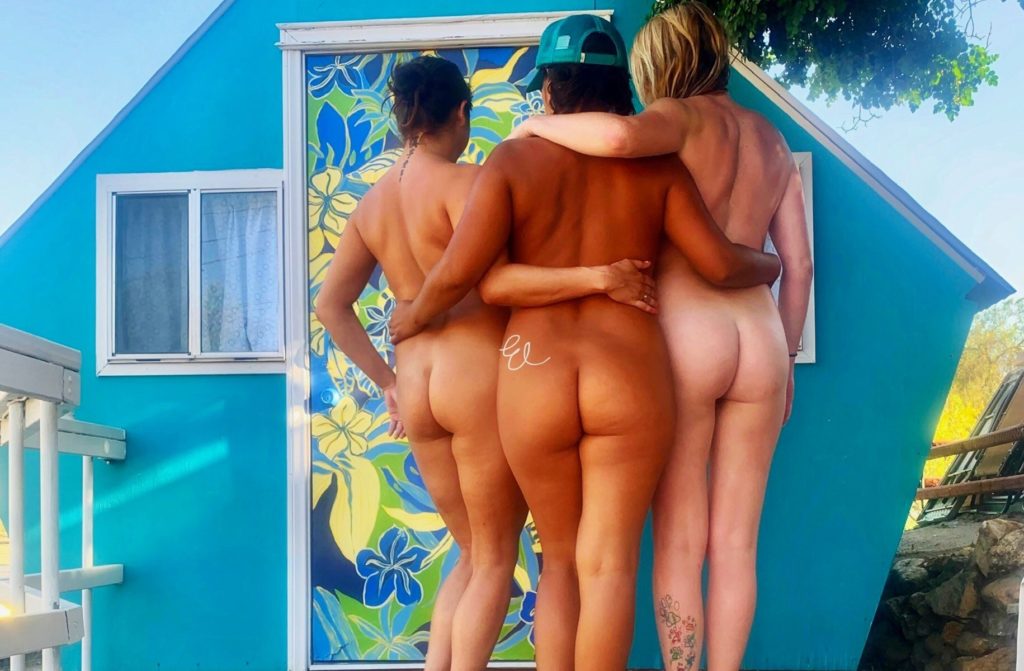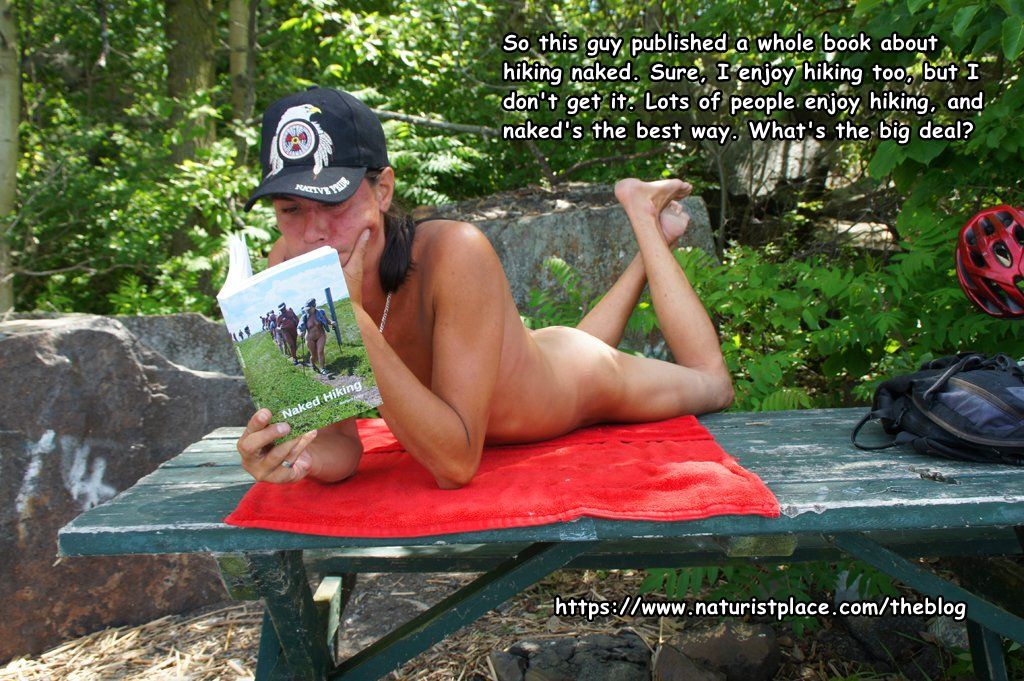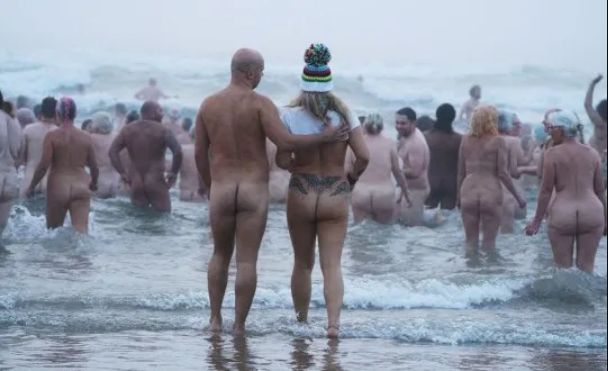
It’s quite striking how much better-accepted naturism is in the UK compared to the US, considering how many other things (including language, to some extent) the two countries have in common. Although UK naturists are still definitely a minority, the articles discussed here should make US naturists very envious of the Brits. (The previous collection of articles also had much evidence of this.)
- Hundreds strip off and brave North Sea in the nude in mass autumn skinny-dip
Since 2012 British naturists in Northumberland have participated in a skinnydip at the beach on Druridge Bay close to the time of the Autumn Equinox. Almost all participants this year waded in completely naked, even though the beach is in the north of England on the North Sea, near the Scottish border – and the event began at sunrise. Daytime high temperatures in the area during September average about 60°F (16°C). The organizer of the event, however, said the temperature was “the warmest it has ever been”. He also explained that “I think people are trying to understand what we are trying to do a little bit more. It’s not just about taking our clothes off[;] it’s about taking a risk, connecting with nature, celebrating life and embracing our own bodies.” For some participants it was their first experience with social nudity. And unlike many naturist events, there were about as many women as men. But it wasn’t just a naturist event, as it also had the purpose of raising money for a local charity. The official count of participants was 737, probably a new high, and each donated £15. More than £50,000 had been raised in the previous 7 years. The event was widely reported in British news media and elsewhere, such as- Hundreds of people get naked for mass skinny dip in the freezing North Sea
- Hundreds strip off for North East skinny dip at Druridge Bay in Northumberland
- Hundreds brave ultra-low temperatures as they join in mass skinny dip to mark arrival of new Equinox
- The North-East skinny dip, 2019
- North East Skinny Dip: Bathers in the buff brave North Sea waves
- Hundreds of brave Brits strip off to mark the autumn equinox with mass skinny dip in North Sea
- Autumn equinox 2019: how is the start of fall season celebrated?
- Royal Academy visitors are invited to brush past naked man and woman in recreation of 1977 performance artwork
Performance artist Marina Abramović came up with the simple idea of having two entirely naked performers stand facing each other in a narrow passageway and inviting members of the public (fully dressed) to squeeze between them. Marina herself and her then-boyfriend put on the first performances at an Italian art gallery in 1977. The performance was called Imponderabilia. It’s now scheduled to be repeated at London’s Royal Academy of Arts main galleries from late September to early December in 2020 – where it will be available for the general public. Two young artists will recreate the performance under Marina’s supervision (and possibly with her own participation). Although members of the public are expected to remain clothed, the piece is intended to challenge their reactions to very close interaction with others who are naked, and to “confront themes of naked vulnerability”.Britain’s The Sun tabloid persuaded their reporter Amy Nickell to do a reenactment of the performance together with a male model (Miguel) – both appropriately naked. Pictures of various people squeezing between Amy and Miguel give the impression (for the most part) that both handled the experience pretty well, although some of those who were required to navigate between the two did so with less equanimity – especially those of larger girth. Nevertheless, Amy reports “I was glad when I got dressed again.” Perhaps – but would she admit it if she actually enjoyed the experience? Here’s an earlier article from The Sun about the forthcoming Royal Academy of Arts performance.
- The Yorkshire naturist club and why we shouldn’t be embarrassed by our bodies
This is a reasonably positive article on Britain’s Yorkshire Sun Society, which was founded in 1932 and is the second oldest naturist club in the country. Patrick Galbraith, whose article this is, does remove his clothes at times. But he doesn’t seem entirely sold on the idea initially, as he begins with the admission that “It had been at least a decade since I’d seen another man in the buff and I was immediately overcome with the urge to apologise to him profusely before running away.” Although he doesn’t quite answer the implied question in the title of the article, by the end of his stay he does have this thought: “I had gone in search of the weird and discovered that it is perhaps people beyond the gates who are the weird ones – those like you and I who sweat like mad on a hot summer’s day because of some inherited belief that thighs and tummies are inherently sexual or offensive.” - Naked cleaners wanted in Devon and Cornwall – and they earn £45 an hour!
What real naturist wouldn’t want to have other naturists handle tedious house cleaning chores (if the price were affordable)? It sounds almost too good to be true, so one might be a bit suspicious that a business of this sort is actually legitimate. Yet, apparently, it is. There have been a number of articles in the (British) news media about such businesses, and the article here is among the latest. The company is named Naked Cleaners (duh). According to the website, the company operates “throughout the UK”, but it is based in London. As you’d expect from a legitimate business, customers are expected to observe a number of rules, spelled out in their FAQ. For instance, touching, photographing, or videoing the cleaners isn’t allowed. Also, nobody except occupants of the home or apartment may be present – but they may be naked themselves. (They’re naturists, after all.)The rate for naked cleaners is £45 per hour (about $58 US). But that’s what the company is paid – presumably the cleaners don’t get all of it. Although the cleaners work naked, they aren’t necessarily long-time naturists – let alone “adult entertainers”. They may be quite new to working naked. One cleaner, quoted in the article, said “I was new to naturism. I had never done it before – I hadn’t even been on a nudist beach or anything like that. I’d just done it in private. I wasn’t nervous because I’m quite comfortable being naked.” However, she explained, “I found the first time quite liberating if anything, because I like being naked. If I’m by myself or with my close friends or a boyfriend, I’ll walk around naked. I’m not sure exactly why I like it, I just feel more comfortable that way.”
- Student animal doctors strip off for naked calendar to raise money for drought-stricken farmers
We turn now to Australia, another English-speaking country where naturism is (probably) more successful than in the US. Since we’re nearing the end of 2019, ’tis the season for a new spate of calendars to make their appearance for 2020. Last January we asked the question Why are calendars featuring naked people such a fad in Britain? It was noted then that Australia also had such calendars – and the latest for 2020 is also from Down Under. According to the article
“Student vets have stripped off their scrubs for a cheeky naked calendar to mark the end of five gruelling years of study. The calendar has become a tradition for veterinary students at Australia’s James Cook University – and this year’s class are no exception. Striking nude poses with strategically placed hats, 40 classmates took part, with the proceeds going towards their graduation ball and a local charity.”
Although whoever decides such things (pusillanimously, as usual) didn’t allow any full-frontal nudity, the calendar pictures are generally entertaining and imaginative. The calendar can be purchased online for $20 AUD (about $14 US) plus S/H at Vets Uncovered. Quite a bargain. Another article on this is here. - 10 Biggest Fears of a Beginning Nudist and How To Overcome Them
The hyperactive (and non-US) bloggers at Naked Wanderings list some of the most common fears that intimidate prospective naturists. The list will be very familiar to current naturists. And the truth is that if a prospective naturist will actually give social nudity a try in a suitable environment, all but one of the fears on the list will quickly be perceived as small problems, at most. The one remaining fear, unfortunately, is the biggie: “How will I explain this to friends and family?” This one needs a lot more thought and effort to overcome.The advice given in the article for this fear is really too skimpy. For instance “The easy solution: Just don’t tell them. It’s none of anyone’s business if you prefer to spend your free time at a nudist resort.” That is, of course, quite unrealistic unless you’re a hermit living by yourself – in which case you may already be used to getting along with few or no clothes. Not only is the advice unrealistic, but the tendency of many or most naturists to be secretive about their enjoyment of nudity is most unfortunate. It’s probably the biggest reason that naturism has struggled so long and so unsuccessfully to really catch on. Simply put: people who become curious about naturism probably have at least some relatives or friends who share their interest – but aren’t aware of that since the others are also secretive. So people who are curious about naturism have much difficulty overcoming the other fears in the first place. A good approach would be to bring up the subject of naturism casually in conversation, perhaps by mentioning news stories like any of the above. If done often enough, others who don’t have a negative attitude towards nudity could be found. It’s also important to become convinced that enjoying nonsexual social nudity is not doing anything wrong. After that, it’s easier to figure out how to explain this fact to others.
